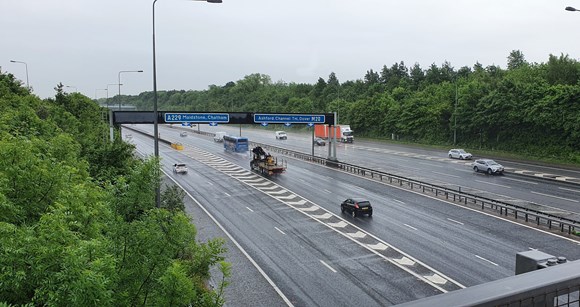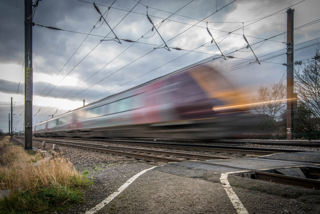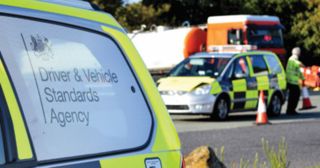National Highways workers will take strike action for 12 days between December 16 and January 7.
The traffic officers and control centre staff going on strike are responsible for programming electronic signs that provide information about speed limits and lane closures, working closely with emergency services to monitor the roads and support when there is a collision.
The strike action does not include those who work on the network to repair and maintain road surfaces and equipment, or gritter activity.
Action begins in the north of England on Friday, December 16, before spreading to other regions in turn over the following three weeks.
National Highways workers in the north west, Yorkshire and Humber and the north east will strike on December 16-17.
Those in London and the south east will strike on December 22-25.
The West Midlands and south west will be affected on December 30-31.
Workers in the East Midlands and eastern areas will strike on January 6-7.
A national two-day strike will also take place on January 3-4.
National Highways said it is working hard to ensure that any industrial action will not affect road users’ experience and is confident that the impact of the strikes will be managed.
Members of the Public and Commercial Services Union (PCS), who work at National Highways, are taking part in the industrial action. Highways England said this equates to around 125 out of 1,500 frontline operational staff.
Duncan Smith, executive director of operations at Highways England, said: “We’ve reviewed the impact that the PCS strikes may have and are confident our well-rehearsed resilience plans mean we can continue to manage and operate our network safely.
“Millions of people rely on our roads and there is a possibility that they may be busier than usual on strike days, particularly when they correspond with industrial action on other transport modes. We’d urge drivers to take extra care during the cold weather and in the run up to Christmas when our network is always busier.”
IAM RoadSmart is urging people to only travel on main roads in England if necessary, and check their vehicle before their journey, as limited support on the highways could put lives at risk. This could cause further danger as roads are expected to get much busier with other transport strikes taking place over the Christmas period.
Neil Greig, director of Policy and Research at IAM RoadSmart, said: “We are very concerned about these strikes. Control centre staff monitor information from traffic detectors and CCTV, and act on it to set the warning signs - they are often the first point of call when there is an incident.
“Having the right support there to act fast is absolutely critical on motorways, as any delays in setting signs or sending help could prolong someone being stranded on the side of a motorway, which can be life-threatening – even a few minutes can make the difference between getting involved in a collision or not.
“We want all drivers to be aware of the issue and, if they have to travel, to take as much care as they can on the roads – this is even more important when the road strikes coincide with severe weather and rail strikes. It has never been more important to make sure you have checked that your vehicle is safe, fuelled and prepared for any challenge.”
This industrial action takes the estimated total of people striking in December to 1.3 million - along with ambulance workers, nurses, rail staff, Royal Mail staff, driving examiners and members of the Border Force.




















Login to comment
Comments
No comments have been made yet.